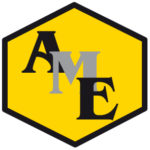
Do not prescribe the dosage of FT3 (free triiodothyronine) for the initial evaluation of the functional state of the thyroid and in the periodic control of hypothyroidism in therapy.
Hormonal dosages are useful biochemical confirmation of thyroid dysfunction in the presence of manifest signs and symptoms and indispensable reference for subsequent checks during therapy. However, it is quite common for people who have only nonspecific disorders (anxiety, depression, dyslipidemia, obesity, heart rhythm disturbances …) to go to the doctor and in whom the probability of pathology is very low. In these cases it is correct to measure only the TSH and to complete the evaluation by measuring the thyroid hormones (FT4 and rarely FT3) only if pathological TSH values are found. In monitoring hypothyroidism replacement therapy with L-thyroxine, the FT3 dosage is not useful for assessing the adequacy of the posology.
Sources
1. Maestri E, Ciardullo AV, Magrini N. Raccomandazioni per la diagnostica delle malattie tiroidee. Piano Nazionale Linee Guida, Istituto Superiore di Sanità, 2003 http://www.pnlg.it/lgn_diagnosi_malattie_tiroidee
2. NACB-ATA Guidelines “Laboratory Support for the Diagnosis and Monitoring of Thyroid Disease”, 2002. http://www.aacc.org/AACC/members/nacb/LMPG/OnlineGuide/PublishedGuidelines/ThyroidDisease/
3. UK Guidelines for the Use of Thyroid Function Tests (ACB-BTA-BTF), 2006. http://www.acb.org.uk/
4. AACE Medical Guidelines for Clinical Practice for the Evaluation and treatment of Hyperthyroidism and Hypothyroidism.Endocr Pract 2002;8:457-69.
5. AACE/AME Medical Guidelines for Clinical Practice for the Diagnosis and Management of Thyroid Nodules. Endocr Pract 2006; 12: 63-102.
6. Demers LM, Spencer CA. Laboratory medicine practice guidelines: laboratory support for the diagnosis and monitoring of thyroid disease. Clin Endocrinol (Oxf) 2003, 58: 138-40.
Download
PDFAttention. Please note that these items are provided only for information and are not intended as a substitute for consultation with a clinician. Patients with any specific questions about the items on this list or their individual situation should consult their clinician.


Recent Comments